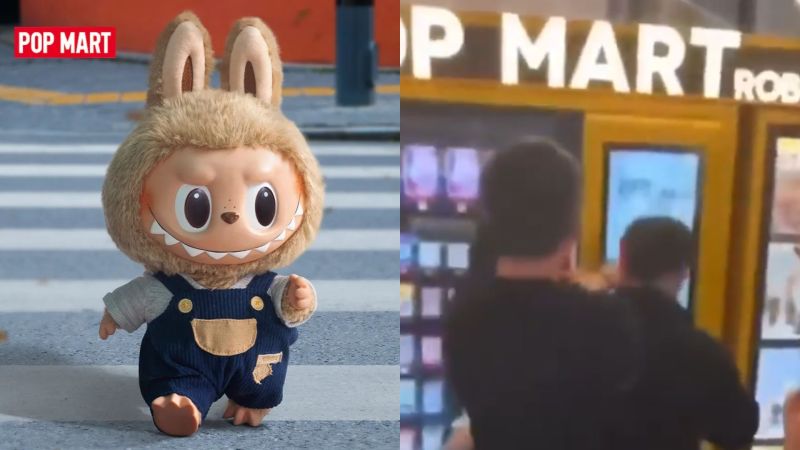A disturbing rumour has gone viral across Chinese social media, claiming that a woman took her own life after failing to purchase a Labubu doll at a shopping mall. However, as of now, no credible media outlets or verified sources in China have confirmed the incident.
The alleged event reportedly took place at a Labubu vending machine inside a shopping centre, where a fight broke out due to overwhelming demand. Videos circulating online show chaotic scenes near the machine, with individuals seen hoarding dolls, further fueling the frenzy.
The claim that a woman committed suicide shortly after being unable to obtain a Labubu doll has since drawn widespread attention—and skepticism—online. Despite the viral nature of the posts, no reputable journalists or Chinese news agencies have validated the reports. The narrative appears to be a social media rumour rather than a confirmed tragedy.
The incident comes amid a massive surge in popularity of Pop Mart’s Labubu dolls. First launched in 2019, the quirky collectible toys skyrocketed to global fame in 2025 following high-profile endorsements by celebrities including BLACKPINK’s Lisa, Dua Lipa, Post Malone, and Rihanna. As a result, Pop Mart’s founder, Wang Ning, became one of China’s youngest billionaires.
The dolls’ cult-like appeal has sparked frenzied buying behaviour, leading to chaotic scenes at vending machines and online platforms alike. This intense demand has also opened the floodgates for counterfeit versions of the doll, known as “Lafufus”, which have saturated grey markets across China and beyond.
According to Dexerto, “Lafufus” recently saw a surge in production, making it harder for collectors to find authentic Labubu dolls. The black-market boom prompted legal intervention: The Economic Times reports that Chinese authorities seized over 46,000 counterfeit Lafufu dolls in a crackdown targeting intellectual property violations and unregulated commerce.
Despite the unclear origins of the suicide rumour, it has ignited a broader conversation about consumer obsession, counterfeit culture, and the mental health impact of viral trends. Mental health advocates have urged the public and media outlets to verify such claims before spreading potentially harmful misinformation.
Pop Mart has not yet issued a formal response regarding the incident or the viral rumours but continues to battle counterfeit distribution and enforce brand protection measures.
While the Labubu craze shows no sign of slowing down, the recent events underscore the risks of unchecked hype, particularly when fuelled by celebrity influence, scarcity marketing, and the power of viral social media content.
Authorities have not opened an investigation, and the claim remains unsubstantiated at this time.

